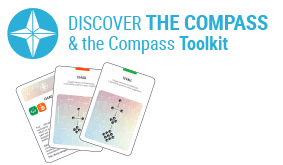More about self-guided e-learning?
/The most visited post on this blog is about self-guided e-learning. For us a connection point to provide you with additional elements about this topic. We do it based on three questions you have sent to us in the last months:
1. Where can I find interesting resources on self-guided e-learning or rapid e-learning?
The Rapid E-learning blog of Articulate is an interesting starting point. You can download a free e-book with e-learning basics or you can consult their massive collection of interesting blogposts on practical e-learning tips.
2. Are there any interesting pedagogical models to shape self-guided e-learning in a more interactive way?
There are several initiatives that move self-guided e-learning beyond the linear slide-based approach. It mainly depends on what type of e-learning course you want to design. Two interesting approaches we can refer to are:
the scenario based learning approach & action mapping (see presentation below)
[slideshare id=398877&doc=actionmappingbasics-1210528860465639-9]
3. What does it cost and what kind of return of investment do I get ?
Difficult question and a lot of interesting answers. To start with you can consult the following article which collects data on “the cost to develop one hour of training“, based on a benchmarking exercise within the e-learning industry. For articles on return of investment we do refer to Tony Karrer, who posted an interesting collection of articles on his e-learning blog.
Feel free to send us any additional questions or comments.







